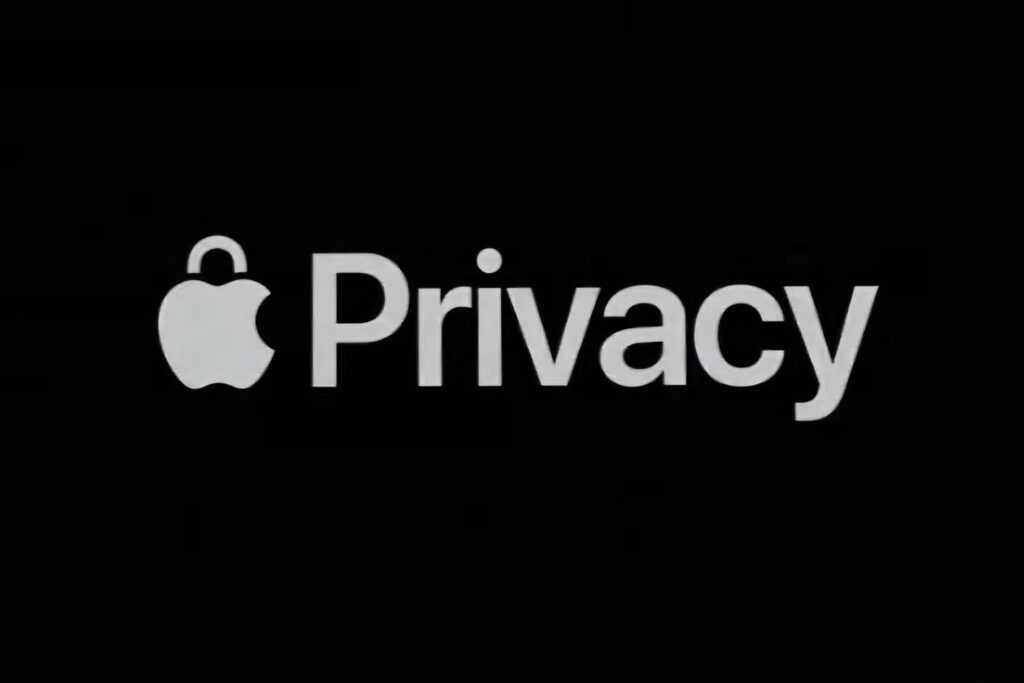Apple has a privacy problem

When you charge as much for a smartphone as Apple does, you need to have a seriously good marketing department. And even then, it helps if you give them something unique to work with.
Some years ago, Apple settled on privacy as its unique selling point. This made a lot of sense, strategically: the public at the time were growing increasingly aware of (and in many cases irritated by) tech companies’ enthusiastic use of their data, and Apple really does have cleaner hands in this respect than most of its rivals. Virtually all non-Apple smartphones of note run an operating system made by the biggest data collector on the planet, whereas Apple just likes to sell expensive hardware.
(Obviously it isn’t, and indeed never has been, quite that simple. But as my colleague Glenn Fleischmann discovered when he addressed the matter back in 2021, Apple’s data-collection and -sharing policies have historically been far more hands-off than Google’s. Not necessarily for any ethical reasons, but more because Google is in the advertising business and Apple isn’t.)
Since then, however, Apple has bumped up against two problems. The first is that, as soon as you start telling everyone you’re a pro-privacy company, people start to look into your privacy policies to see if that’s true, and they will rightly hold you to a higher standard than your rivals. Caesar’s wife must be above suspicion. And it doesn’t look good when Caesar’s wife is forced to pay out $95m over non-consensual eavesdropping.
In response to that settlement, Apple has publicly reaffirmed its commitment to privacy. “Privacy is a foundational part of [our] design process,” Apple said in a statement, “driven by principles that include data minimization, on-device intelligence, transparency and control, and strong security protections that work together to provide users with incredible experiences and peace of mind. This applies to all of our products and services, including Siri, which has been engineered to protect user privacy and is the most private digital assistant.”
A noble sentiment, well expressed. (Well, all except the sly dig at the end. If you get caught with your hand in the cookie jar I don’t want to hear you whinging about other people’s cookie consumption.) But it’s not enough to talk about privacy; Apple needs to demonstrate its commitment through action.
Last year I expressed concerns about the privacy implications of working with ChatGPT–but the company was desperate to get a foothold in the AI market and evidently decided to hold its nose and do what needed to be done. Fine. But before that, there were concerns about tracking on the App Store. And before that there were privacy issues in Mail. There’s only so many times this stuff can surface and be plausibly explained away in yet another eloquent Newsroom article.
Now, Apple does have a point: regardless of these gaffes, it remains the undisputed privacy leader. Other companies are worse. But those companies haven’t built their public relations strategy around safeguarding user privacy. Their customers have probably made their peace with data being collected and sold; Apple’s haven’t, and their confidence will be shaken each time its reputation takes a knock. Either make sure your privacy policies are above reproach or stop talking about it.
The latter option might not, in fact, be a bad idea. Because the second problem is this: do people actually care about privacy? My suspicion is that, in a general sense and provided the data is anonymized, most tech users in 2025 have accepted that they are being tracked most of the time. (The prospect of something intimate and personally identifiable being leaked remains a frightening one. But until you’re part of an iCloud leak–whoops, another embarrassing moment for the pro-privacy company–then it feels like something that will never happen to you.) Ask the average smartphone buyer if they like being tracked online, and they will say no; but offer to protect them from tracking for a price, and I don’t reckon you’d get many takers.
Ultimately this is the quandary Apple finds itself in. When it gets privacy wrong, it’s front-page news; when it gets privacy right, hardly anyone cares. You can see why other companies leave the subject well alone.
Foundry
Welcome to our weekly Apple Breakfast column, which includes all the Apple news you missed last week in a handy bite-sized roundup. We call it Apple Breakfast because we think it goes great with a Monday morning cup of coffee or tea, but it’s cool if you want to give it a read during lunch or dinner hours too.
Trending: Top stories
Looking back 25 years later, even Steve was wrong about Mac OS X.
Thiago Trevisan explains why the Mac Pro is still the king of computers.
At CES 2025, everyone wants to be just like Apple.
We’ve found 8 cool CES announcements every Apple fan will want to buy.
If you used Siri in the past decade, Apple owes you some money.
Apple Intelligence can still save AI—by solving the smallest problems.
The Mac can finally begin again in 2025.
Apple Intelligence didn’t write this headline. Which means you can trust it!
Dude, you’re getting an iPhone… um MacBook… er Dell Pro Max! Dell’s new laptop names sound awfully familiar.
Podcast of the week
When Apple officially announced Mac OS X, it changed the course of history for the company. On the latest episode of the Macworld Podcast, we look at the history of Mac OS X, the effect it has had on the company, and what we expect in the future.
You can catch every episode of the Macworld Podcast on Spotify, Soundcloud, the Podcasts app, or our own site.
Reviews corner
Best antivirus for Mac 2025: Top security software compared.
Tenorshare PDNob PDF Editor review: Decent for specific use cases.
Acronis True Image for Mac review: Admirable antivirus protection.
Ugreen NASync DXP480T Plus review: A network-attached storage device capable of supporting your home.
Dockcase Smart MagSafe M.2 NVMe SSD Enclosure review: Storage puck for the iPhone.
The rumor mill
The iPad 11 and iPhone SE 4 are ‘on the iOS 18.3 train’ but won’t arrive till April.
Apple’s next iPhone app could be an easy way to manage event invitations.
Software updates, bugs, and problems
Apple vows to ‘clarify’ AI summaries after spate of fake news alerts.
iOS 18.2.1 has emergency bug fixes for unknown iPhone issues.
And with that, we’re done for this week’s Apple Breakfast. If you’d like to get regular roundups, sign up for our newsletters. You can also follow us on Facebook, Threads, or Twitter for discussion of breaking Apple news stories. See you next Monday, and stay Appley.



